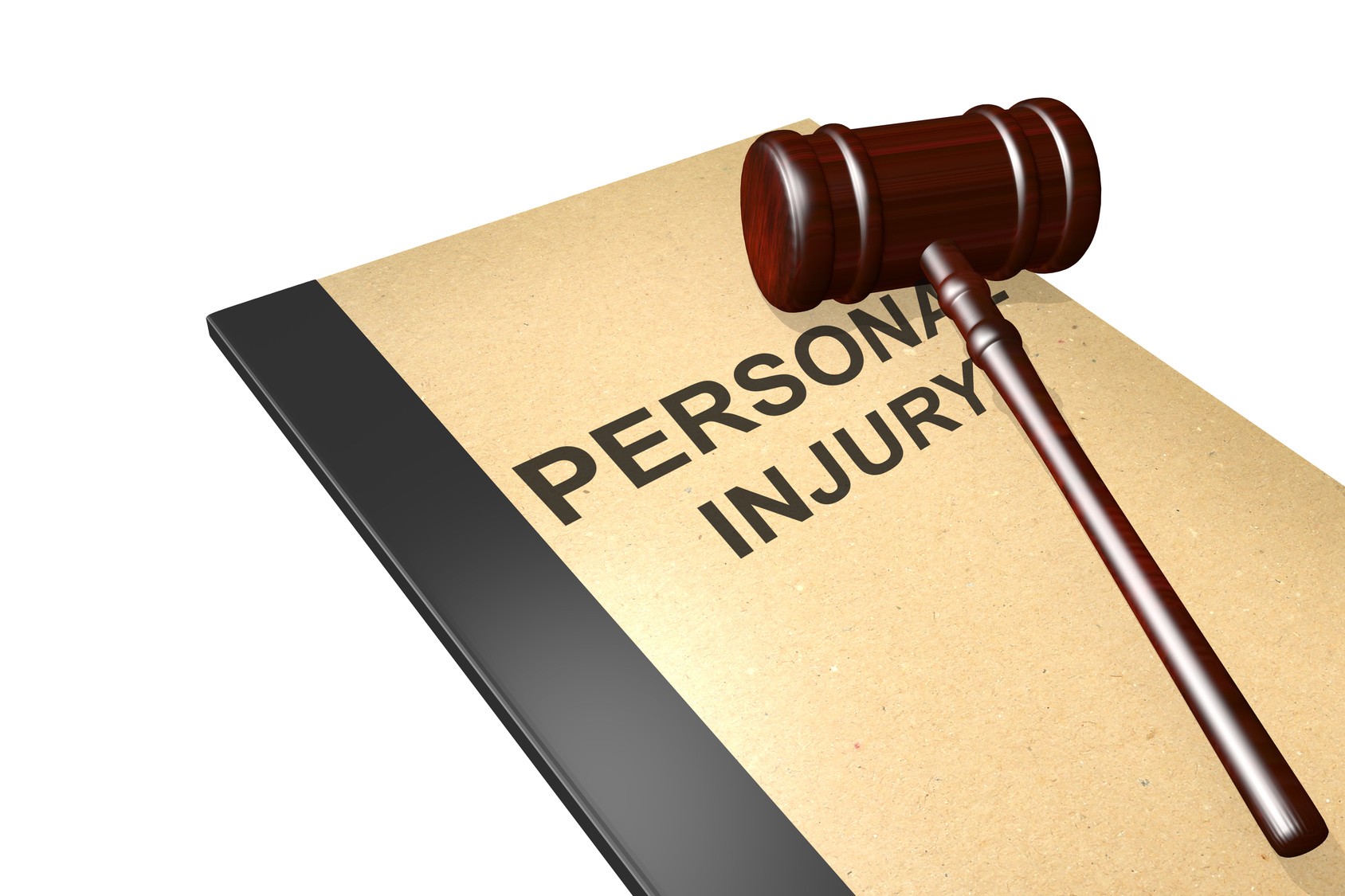Guidelines about Personal Injury Law

Personal injury law, also known as tort law, is a area of law that provides relief to people who have been harmed by the wrongful actions of another. This can include physical injuries, emotional distress, and financial damages.
There are many different types of personal injury cases, but some of the most common include car accidents, slip and fall accidents, medical malpractice, and workplace injuries.
If you have been injured due to the negligence of another, you may be entitled to compensation for your damages. An experienced personal injury lawyer can help you understand your legal rights and options and pursue the compensation you deserve.
Who can file a personal injury lawsuit?
When it comes to personal injury law, there are a lot of different factors that can come into play. In order to ensure that you are able to file a successful personal injury lawsuit, it is important to understand who can actually file one of these lawsuits. In this blog, we will go over some of the different aspects of this type of law so that you can get a better understanding of who can file a personal injury lawsuit.
As the name implies, personal injury law is designed to protect people who have been injured due to the negligence of another person or entity. This means that if you have been injured due to someone else’s careless actions, you may be able to file a personal injury lawsuit. There are a few different types of injuries that this type of law covers, including physical injuries, emotional injuries, and even financial injuries.
In order to file a personal injury lawsuit, you will need to have suffered some type of injury. This injury can be either physical or emotional, but it must be severe enough that it has caused you some type of harm. For example, if you were in a car accident and suffered a broken bone, you would likely be able to file a personal injury lawsuit. However, if you were in a car accident and only suffered minor cuts and bruises, you would likely not be able to file a personal injury lawsuit.
In addition to suffering an injury, you will also need to be able to prove that the other person or entity was at fault for your injuries. This means that you will need to show that the other person or entity was careless or negligent in some way. For example, if you were in a car accident and the other driver was speeding, you would likely be able to prove that they were at fault for your injuries.
Once you have proven that the other person or entity was at fault for your injuries, you will then need to prove that your injuries were actually caused by their negligence. This can be done by providing medical records or other evidence that shows that your injuries were directly caused by the other person’s or entity’s negligence.
If you are able to prove all of these things, you will then be able to file a personal injury lawsuit.

How is fault determined in a personal injury lawsuit?
A personal injury lawsuit can be filed when someone is injured due to the negligence of another person or entity. In order to prove negligence, the plaintiff must show that the defendant owed them a duty of care, breached that duty, and that the breach was the cause of the plaintiff’s injuries. The amount of damages that the plaintiff will be awarded will depend on the severity of their injuries and the extent of the defendant’s negligence.
There are many different types of personal injury lawsuits, but they all follow the same basic process. The first step is to file a complaint with the court. The complaint will detail the plaintiff’s injuries and state the amount of damages that they are seeking. The defendant will then have an opportunity to respond to the complaint.
Once the complaint and response have been filed, the parties will engage in discovery. During discovery, each side will have the opportunity to request information and documents from the other side. The parties will also take depositions, which are sworn statements from witnesses.
After discovery is complete, the parties will file motions with the court. These motions can be used to request a ruling on various issues, such as whether the case should be tried in front of a jury.
If the case goes to trial, each side will present their evidence and arguments to a judge or jury. The judge or jury will then decide whether the plaintiff should be awarded damages and, if so, how much.
The personal injury lawsuit process can be complex and time-consuming. It is important to consult with an experienced personal injury attorney to ensure that your rights are protected.
What are the most common types of personal injury lawsuits?
There are many different types of personal injury lawsuits that can be filed. The most common types are based on negligence, strict liability, and intentional torts.
Negligence is the most common type of personal injury lawsuit. It is based on the idea that people have a duty to act in a certain way to avoid harming others. If they fail to do so and someone is injured, they can be held liable. To win a negligence lawsuit, the plaintiff must prove that the defendant owed them a duty of care, that the defendant breached that duty, and that the plaintiff was injured as a result.
Strict liability is another common type of personal injury lawsuit. It applies in situations where the defendant is held liable regardless of whether they were actually at fault. This can be the case in certain dangerous activities, such as using defective products. To win a strict liability lawsuit, the plaintiff must prove that the defendant was engaged in a dangerous activity, that the activity was the cause of the plaintiff’s injury, and that the plaintiff was injured.
Intentional torts are another type of personal injury lawsuit. They are based on the idea that the defendant deliberately harmed the plaintiff. To win an intentional tort lawsuit, the plaintiff must prove that the defendant intended to harm them, that they did in fact harm the plaintiff, and that the plaintiff was injured as a result.

How much money can you recover in a personal injury lawsuit?
If you’ve been injured in an accident, you may be wondering how much money you can recover in a personal injury lawsuit. The answer depends on a number of factors, including the severity of your injuries, the amount of medical bills you’ve incurred, and the amount of lost wages you’ve suffered.
In general, you can recover compensatory damages in a personal injury lawsuit. Compensatory damages are designed to reimburse you for your losses. They may include damages for medical expenses, lost wages, pain and suffering, and property damage. You may also be able to recover punitive damages in some cases. Punitive damages are designed to punish the wrongdoer and deter future misconduct.
The amount of money you can recover in a personal injury lawsuit will also depend on the state in which the accident occurred. Some states have laws that limit the amount of money that can be recovered in a personal injury lawsuit. These laws are known as “damages caps.”
If you’ve been injured in an accident, it’s important to speak with an experienced personal injury attorney to learn more about your legal rights and options.
What are the time limits for filing a personal injury lawsuit?
Most personal injury lawsuits must be filed within two years from the date the injury occurred. This is known as the statute of limitations. After this time period has expired, you will be barred from bringing a lawsuit against the responsible party.
There are some exceptions to this rule. If the injured party is a minor, the statute of limitations may be extended. In some cases, the statute of limitations may also be extended if the responsible party is a government entity.
If you have been injured in an accident, it is important to speak with an experienced personal injury attorney as soon as possible. An attorney can help you understand the applicable statute of limitations and ensure that your claim is filed within the required time frame.
What should you do if you’ve been injured in an accident?
If you or a loved one has been injured in an accident, it is important to seek legal guidance as soon as possible. The first step is to contact a personal injury attorney to discuss your case.
Your attorney will review the facts of your case and advise you on the best course of action. If you have a valid claim, your attorney will work with you to file a personal injury lawsuit.
The goal of a personal injury lawsuit is to seek compensation for your damages. This can include medical bills, lost wages, and pain and suffering. If you have been seriously injured, you may also be able to seek punitive damages.
The process of filing a personal injury lawsuit can be complex. Your attorney will handle all the legal details and work to build a strong case on your behalf. If you have been injured in an accident, don’t hesitate to seek legal help.
Anyone can join.
Anyone can contribute.
Anyone can become informed about their world.
"United We Stand" Click Here To Create Your Personal Citizen Journalist Account Today, Be Sure To Invite Your Friends.
Please Help Support BeforeitsNews by trying our Natural Health Products below!
Order by Phone at 888-809-8385 or online at https://mitocopper.com M - F 9am to 5pm EST
Order by Phone at 866-388-7003 or online at https://www.herbanomic.com M - F 9am to 5pm EST
Order by Phone at 866-388-7003 or online at https://www.herbanomics.com M - F 9am to 5pm EST
Humic & Fulvic Trace Minerals Complex - Nature's most important supplement! Vivid Dreams again!
HNEX HydroNano EXtracellular Water - Improve immune system health and reduce inflammation.
Ultimate Clinical Potency Curcumin - Natural pain relief, reduce inflammation and so much more.
MitoCopper - Bioavailable Copper destroys pathogens and gives you more energy. (See Blood Video)
Oxy Powder - Natural Colon Cleanser! Cleans out toxic buildup with oxygen!
Nascent Iodine - Promotes detoxification, mental focus and thyroid health.
Smart Meter Cover - Reduces Smart Meter radiation by 96%! (See Video).





